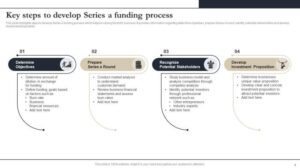
Retail sustainability practices are not just a trend; they represent a vital shift in how businesses operate. These practices focus on reducing environmental impact, enhancing social responsibility, and driving economic viability. As consumers increasingly demand eco-friendly options, retailers are stepping up to meet these expectations, creating innovative solutions that benefit both the planet and their bottom line.
This exploration of retail sustainability dives deep into its significance, showcasing key components and highlighting successful initiatives from around the globe. By embracing sustainability, retailers can not only attract conscientious customers but also contribute to a healthier world.
Overview of Retail Sustainability Practices
Sustainability has become a crucial focus in the retail sector as environmental concerns dominate global discussions. The significance of adopting sustainable practices is not merely a trend but a vital shift towards ensuring the longevity of businesses and the health of the planet. Retailers are increasingly recognizing that sustainability can drive consumer loyalty, improve brand reputation, and lead to significant cost savings.Key components of sustainable retail practices include responsible sourcing, waste reduction, energy efficiency, and ethical labor practices.
By focusing on these areas, retailers can minimize their environmental impact while fostering a positive corporate image. Successful examples of sustainable retail initiatives can be found globally, such as IKEA’s commitment to using sustainable materials and Patagonia’s dedication to environmental activism and transparency in their supply chain.
Business Innovation in Retail Sustainability
Innovative technologies play a pivotal role in enhancing sustainability within the retail sector. This includes advancements in supply chain management, data analytics for inventory optimization, and eco-friendly packaging solutions. Retail brands like Unilever and Walmart are leading the way in implementing innovative practices that reduce their ecological footprint while ensuring economic viability.To effectively integrate innovation into retail sustainability practices, a structured framework is essential.
This framework should encompass identifying sustainability goals, evaluating current practices, researching innovative solutions, and implementing changes with measurable outcomes. Collaboration among stakeholders, including suppliers and consumers, is crucial for fostering a culture of innovation in sustainability.
International Business and Sustainability
International retailers approach sustainability with varying strategies depending on the cultural and regulatory contexts of their operating regions. For instance, European retailers often place a stronger emphasis on environmental regulations and consumer demand for sustainable products compared to their counterparts in other regions. Comparing sustainability practices across different countries reveals a spectrum of commitments. In Scandinavian countries, for example, sustainable practices are deeply ingrained in the retail culture, whereas in some developing nations, the focus may be on economic growth over sustainability.
The global supply chain significantly impacts sustainable retail, as retailers must consider the environmental implications of sourcing products from various regions.
Business Interviews and Sustainability Leaders
Conducting interviews with retail sustainability leaders can provide valuable insights into current trends and innovative practices. Questions tailored for these leaders may include their perspective on the biggest challenges in achieving sustainability, the technologies they find most promising, and examples of successful initiatives within their companies.Key insights from industry experts highlight the importance of collaboration and transparency in sustainability efforts.
Best practices mentioned by interviewees can be organized into actionable steps, such as setting clear sustainability targets, engaging employees in sustainability initiatives, and communicating progress to stakeholders.
Job Search Techniques in Sustainable Retail
As the demand for sustainability in retail grows, so does the need for skilled professionals who can drive these initiatives. Candidates seeking roles in sustainable retail should focus on developing essential skills such as knowledge of sustainable practices, data analysis, and project management. Having a strong understanding of sustainability can significantly enhance job prospects in the retail sector. When applying for positions, highlighting relevant sustainability experience on resumes is crucial.
This can include projects, volunteer work, or coursework related to sustainability, showcasing a candidate’s commitment to the field.
Business Management and Sustainability Integration
Integrating sustainability into retail business strategies requires a multifaceted approach. Methods include aligning sustainability goals with overall business objectives, engaging stakeholders, and utilizing performance metrics to track progress. Case studies of effective sustainability management in retail illustrate how companies like Whole Foods and The Body Shop have successfully embedded sustainable practices into their core operations. Leadership plays a vital role in fostering a culture of sustainability, as it requires a commitment to both vision and implementation among all levels of staff.
Marketing Direct Strategies for Sustainable Brands
Creating a marketing plan focused on sustainable practices involves clearly communicating the brand’s commitment to sustainability and its impact on the consumer’s choices. Techniques for effectively conveying sustainability efforts include storytelling, utilizing social media, and engaging in community partnerships.Eco-labeling has proven to be an effective marketing tool for sustainable products, as it helps consumers identify environmentally friendly options easily. Brands like Seventh Generation and Ecover leverage eco-labels to enhance consumer trust and influence purchasing decisions.
Business Networking for Sustainability
Networking plays a critical role in advancing sustainability within the retail sector. Key industry events focusing on retail sustainability provide opportunities for professionals to share best practices, learn from each other, and form collaborations.Building relationships with sustainability advocates in retail is essential for sharing knowledge and resources. Tips for effective networking include joining industry associations, participating in sustainability forums, and attending conferences where sustainability is a key focus.
Business Outsourcing and Sustainability
Outsourcing can significantly contribute to achieving sustainability goals in retail, provided that the right partners are selected. Sustainable practices that can be adopted by outsourced partners include ethical sourcing, waste reduction, and energy-efficient operations.While outsourcing can present benefits such as cost savings and access to specialized expertise, it also introduces risks related to sustainability, such as lapses in ethical standards or environmental compliance.
Mitigating these risks involves thorough vetting of partners and establishing clear sustainability criteria.
Business Presentation on Retail Sustainability
Presenting sustainable practices to stakeholders requires a well-structured approach. A template for these presentations should include an overview of sustainability goals, examples of successful initiatives, and data supporting the benefits of sustainability.Effective storytelling techniques can engage stakeholders and emphasize the importance of sustainability. Incorporating impactful visuals, such as infographics and charts, can enhance understanding and retention of key information during the presentation.
Business Productivity in Sustainable Retail
Utilizing productivity tools can help retailers implement sustainable practices more effectively. Tools such as project management software and sustainability tracking systems can streamline processes and improve efficiency.Sustainability can enhance overall business productivity by reducing waste and optimizing resource use. A checklist for evaluating productivity in sustainable initiatives may include metrics such as waste reduction percentages, energy savings, and employee engagement levels.
Sustainability in the Restaurant Industry
Sustainability practices specific to the restaurant sector involve sourcing local ingredients, minimizing food waste, and implementing energy-efficient technologies. Restaurants face challenges in maintaining profitability while adopting these practices, but many are rising to the occasion.Success stories in the restaurant industry illustrate how establishments like Blue Hill and Chipotle have excelled in sustainability through innovative sourcing methods and community engagement initiatives.
Resumes and Cover Letters for Sustainable Roles
Crafting a resume tailored to sustainable retail positions involves highlighting relevant experiences and skills. Candidates should focus on showcasing their commitment to sustainability and any specific projects or initiatives they have been part of.Impactful cover letter statements should convey passion for sustainability and demonstrate understanding of the company’s sustainability goals. Common mistakes to avoid include failing to customize applications for specific roles and lacking clarity on sustainability-related achievements.
Retail Strategies for Sustainability
Key retail strategies promoting sustainability include adopting circular economy principles, engaging in responsible sourcing, and implementing waste reduction initiatives. Educating consumers about sustainability is equally important, as informed customers are more likely to support sustainable brands.Metrics for measuring sustainability performance in retail can encompass carbon footprint reductions, waste diversion rates, and customer satisfaction scores related to sustainability efforts.
Risk Management in Sustainable Retail
Potential risks associated with sustainable practices in retail include compliance issues, reputational damage, and supply chain disruptions. Developing strategies for mitigating these risks is essential for ensuring the success of sustainability initiatives.Case studies highlighting effective risk management in sustainable retail efforts can provide valuable insights. For instance, retailers who have proactively addressed supply chain vulnerabilities through diversification and ethical sourcing have mitigated potential fallout.
Business Sales Techniques for Sustainable Products
Sales strategies tailored for promoting sustainable products should focus on transparency and educating consumers about the benefits of sustainability. Building trust through honest communication is essential for successful sales pitches.Notable examples of successful sales campaigns for sustainable brands demonstrate how effective storytelling and customer engagement can lead to increased sales and brand loyalty.
Sales Management within Sustainable Retail

Sales management plays a crucial role in fostering sustainability within retail organizations. Training programs focused on sustainability can equip sales teams with the knowledge necessary to communicate the value of sustainable products effectively.Setting sustainability goals within sales departments can drive performance and encourage a commitment to sustainability throughout the organization. Techniques for achieving these goals include regular performance reviews and recognition of team achievements in sustainability.
Sales Teleselling for Sustainable Products
Creating a telesales script focused on sustainability messaging should highlight the environmental benefits of products while addressing potential customer concerns. Best practices for selling sustainable products over the phone include active listening and personalizing the sales approach.Overcoming objections related to sustainability can be achieved by providing concrete examples of sustainability impacts and addressing consumer skepticism with facts and testimonials.
Sales Training on Sustainability
Designing a training module for sales teams on sustainable product knowledge can enhance their ability to sell effectively. Role-playing scenarios can facilitate practice in employing sustainability sales techniques and addressing customer inquiries.Continuous education in sustainability is vital for sales professionals, as the field is constantly evolving. Staying informed about new trends and innovations can give sales teams a competitive advantage.
Business Security in Sustainable Retail Practices
Security challenges unique to sustainable retail operations may include protecting sensitive supply chain data and ensuring the integrity of sustainable sourcing. Implementing robust security measures is essential to maintain consumer trust and protect company assets.Strategies for maintaining security while implementing sustainable practices include utilizing advanced cybersecurity protocols and training employees on security best practices. Case studies of best practices in security for sustainable retail offer valuable lessons for retailers navigating these challenges.
Small Business Sustainability Practices

Small retailers can adopt various sustainability strategies that are feasible within their operational constraints. Simple practices such as reducing packaging waste, sourcing locally, and implementing energy-efficient systems can make a significant impact.However, small businesses often face unique challenges in sustainability, including limited resources and a lack of access to sustainable suppliers. Resources and support systems are essential for small businesses looking to improve sustainability.
Solo Professionals and Sustainable Retail
Solo professionals can implement sustainability in their business models by choosing eco-friendly materials, using sustainable practices in their operations, and promoting their commitment to sustainability in marketing efforts. Marketing sustainable practices as a solo professional can involve leveraging social media and building partnerships with like-minded businesses. Examples of successful solo entrepreneurs in sustainable retail illustrate the potential for impact through innovative approaches.
Strategic Planning for Sustainability in Retail
Strategic planning is crucial for achieving sustainability goals in retail. A comprehensive framework for developing a sustainable retail strategy should involve stakeholder engagement, clear goal setting, and ongoing evaluation of sustainability performance.Stakeholder engagement plays a significant role in the planning process, as it fosters collaboration and buy-in from all parties involved in sustainability initiatives.
Team Building for Sustainable Practices
Team-building activities that promote sustainability awareness can enhance employee engagement and foster a culture of sustainability within organizations. Best practices for cultivating a sustainability-focused culture include regular training sessions and encouraging innovative ideas from team members.Resources for training teams on sustainability concepts can include workshops, seminars, and interactive activities that reinforce the importance of sustainability in the retail sector.
Venture Capital and Sustainable Retail
Venture capital plays an essential role in funding sustainable retail initiatives, providing the necessary resources for innovative entrepreneurs to bring their ideas to fruition. Pitching sustainability-focused retail ideas to investors requires a strong business case and a clear demonstration of market demand.Successful venture-funded sustainable retail ventures provide examples of how innovative concepts can gain traction and drive significant change in the industry.
Workplace Communication for Sustainability
Effectively communicating sustainability goals within a retail organization is vital for fostering a culture of sustainability. Techniques for gathering employee feedback on sustainability practices can inform improvements and foster a sense of ownership among staff.Transparent communication about sustainability efforts is essential for building trust among employees and stakeholders, ensuring that everyone is aligned with the organization’s sustainability objectives.
Workplace Safety in Sustainable Retail
Sustainability practices can enhance workplace safety by promoting a healthier environment and reducing harmful substances. Implementing safety protocols that align with sustainability efforts is essential for creating a safe workplace.Training employees on safety and sustainability can ensure compliance and establish a culture of responsibility within the organization. Resources for safety training can include workshops, online courses, and safety manuals tailored to sustainability practices.
Final Thoughts
In conclusion, retail sustainability practices are essential for the future of commerce. By prioritizing environmental and social considerations, retailers can secure a competitive edge while fostering goodwill within their communities. As we continue to witness the transformation of the retail landscape, the integration of sustainable practices will undoubtedly play a pivotal role in shaping a more sustainable tomorrow.
FAQs
What are retail sustainability practices?
Retail sustainability practices encompass strategies and actions that retailers implement to minimize their environmental impact while promoting social and economic wellbeing.
How can consumers support retail sustainability?
Consumers can support retail sustainability by choosing eco-friendly products, supporting brands with sustainable practices, and advocating for transparency in the retail sector.
What role does technology play in retail sustainability?
Technology enhances retail sustainability by enabling better resource management, reducing waste, and optimizing supply chains for lower carbon footprints.
Are there financial benefits to adopting sustainable practices?
Yes, retailers that adopt sustainable practices often see cost savings through improved efficiency, waste reduction, and increased customer loyalty.
How can small retailers implement sustainability?
Small retailers can implement sustainability by adopting simple practices such as reducing packaging, sourcing local products, and optimizing energy use in their operations.



